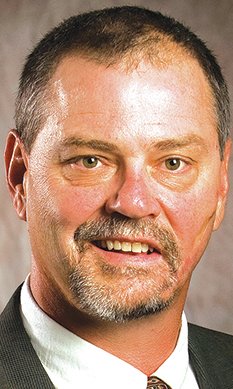ROGERS -- A motion to intervene in a lawsuit filed against the city by City Attorney Ben Lipscomb asks a federal judge find Lipscomb isn't qualified to serve in the position.
The residents who filed the motion, Brian Ferguson and Ellen Turner, state in the complaint Lipscomb isn't qualified because he isn't a resident of the city, but lives near Beaver Lake.
County property records show Lipscomb lives along Dearhurst Road, and claims a homestead tax on the property. County Assessor Bear Chaney previously said a homestead tax is claimed on a property owner's primary residence.
A city attorney must be a qualified voter in the city in which he serves according to state law, the complaint states. Lipscomb has voted in city elections using the address of a house he owns in the city, but doesn't live in, according to the complaint.
For those reasons, Ferguson and Turner ask Lipscomb be prevented from acting as city attorney.
Court action could be the only way to remove an elected official from office. Elected officials cannot be terminated, officials have said. State law provides a limited number of ways to remove an elected official from office.
No one from the state Attorney General's office would comment about how elected officials can be removed from office, directing question to attorney general opinions and state law on the state website.
There are three ways an elected official can be removed from office, according to law and attorney general opinions.
An elected official can be removed from office if he's found guilty of nonfeasance or malfeasance in office. Nonfeasance is when the elected official willfully and knowingly fails, refuses or neglects any of the laws or ordinances within their jurisdiction. Malfeasance provides for the removal of an elected official for corruption, gross immorality or criminal conduct, according to state law.
A court hearing is held to determine if there has been nonfeasance or malfeasance. If the court finds there has been nonfeasance or malfeasance, the judge can remove the person from office, under state law 14-42-109.
An elected official can also be removed from office by a recall election, under state law 14-42-11.
Signatures of 25 percent of the registered voters in the governmental entity served by the individual must be collected on a petition asking for a recall vote. The petition must be filed with the county clerk by noon no more than 105 day or less than 91 days from the next general election. The next general election is scheduled for 2016.
Rogers has 28,969 qualified voters, which would mean 7,242 signatures would be required on a recall petition involving a city official.
State law also allows an elected official to be removed from office if he doesn't meet qualifications of the office, such as residency or licensing, according to state law.
"The Legislature put in place statutes to elect or remove elected officers, " Lipscomb said. "They did that for a reason. I don't think the mayor, Chris Griffin or the council understand that. It is all politics -- just trying to get rid of me, not what's best for the city."
Tension between city officials and Lipscomb began to escalate when Lipscomb used his city identification to gain entry into the VIP tent at the Walmart Arkansas Music Pavilion last summer. A Springdale police officer said Lipscomb impersonated a law enforcement officer. A special prosecutor didn't file criminal charges against Lipscomb.
Lipscomb and Chris Griffin, then a deputy city attorney, had conflicts, according to an email obtained under the Freedom of Information Act. Lipscomb suggested Griffin be made city staff attorney, and that many duties assigned to Lipscomb be transferred to Griffin, aldermen and Mayor Greg Hines have said. Aldermen agreed, created the position and transferred the duties.
Lipscomb, in November, filed a federal lawsuit against the mayor and aldermen claiming his Constitutional rights were violated when the majority of his duties were moved to Griffin. Three aldermen signed affidavits stating Lipscomb told each he suggested the changes.
The motion to intervene was filed on Monday.
A hearing on the lawsuit is scheduled for Jan. 20 in U.S. District Court in Fayetteville.
NW News on 01/03/2015
